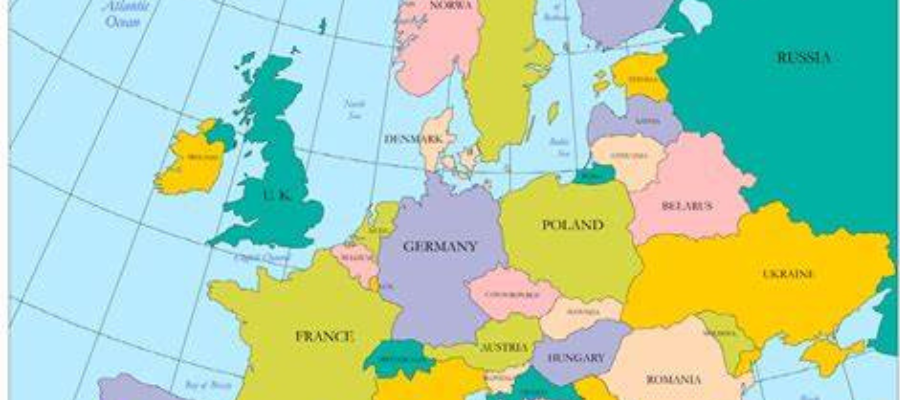Should You Get a Dual Degree From Two Countries?


Higher education has moved beyond geographical barriers in the interconnected world today. One of the trends becoming increasingly common among goal-oriented students is obtaining a dual degree from two nations. Whether pairing an MBA in the U.S. with a Master’s degree in Europe or earning an engineering degree alongside business studies in Asia, dual degrees are being sold as a advantage in the global marketplace. Are they worth it? Should you spend the additional time, money, and energy?
Let’s go deep inside what a double degree between countries actually is, its advantages and disadvantages, and if it suits you.
What Is a Double Degree of Two Countries?
A dual degree (also known as a double degree or joint degree) is a program that allows students to study at two universities—often in two different countries—and earn two degrees, either simultaneously or sequentially. This isn’t to be confused with a double major, where students pursue two specializations at the same institution.
These global dual degrees are frequently made available through institutional partnerships. To illustrate, one might study at a university in India for two years and a partner university in the UK for two years and graduate with both degrees.
Formulas for Dual Degrees Between Countries
Not every dual degree is the same. Below are several typical models:
- 2+2 Undergraduate Programs: The first two years are spent at the home institution and the last two abroad.
- 1+1 Master’s Programs: Generally, one year is spent at a home university and the other at a partner university abroad.
- Integrated Degrees: These integrate undergraduate and postgraduate education in two nations.
- Research-Based Dual Degrees: These are research partnerships between two institutions, typically at the PhD level.
Every format has a distinct academic framework, credit transfer system, and degree acceptance, so it’s important to know the details of your preferred program.
The Advantages of Getting a Dual Degree in Two Nations
- Global Exposure and Cultural Immersion
Pursuing two degrees from two nations certainly opens your mind. You gain two sets of academic environments, cultures, modes of teaching, and potentially two languages. This kind of exposure encourages flexibility, cross-cultural communication, and awareness of the global environment—qualities that are essential in the current international workforce.
- Academic Versatility
Most double degree courses are structured to provide students with mastery of two complementary fields or approaches. For example, you might be doing business management in the United States and international economics in Germany. This inter-disciplinary learning will make you more attractive to employers looking for a variety of skills.
- Improved Career Opportunities
Graduating from two institutions with credentials can seriously enhance your résumé. Your employer might view you as a person with wider vision, who can work in multicultural teams and fit themselves into international setups quickly. International education experience is something that some businesses, particularly multinational businesses, actively pursue.
- Improved Academic Network
When you are enrolled in two universities, you establish contacts with two groups of professors, peers, alumni, and career placement offices. This wider network can prove beneficial for placement at internships, jobs, or advanced academic studies.
- Double Resources
Students in dual degree programs generally have access to the resources of both universities’ libraries, laboratories, mentorship, and career services. This can give you twice the chances of being placed in research studies, grants, or internships.
The Challenges and Considerations
Although dual degrees from two nations have undeniable advantages, they also have equally great challenges. Here’s what you need to consider prior to making your decision.
- Higher Costs
Double degrees tend to cost more to study, with travel costs, visa fees, accommodation, living expenses in two locations, etc. Even after scholarships, it may be onerous from a financial viewpoint. It pays to work out if the payback on the investment (PBI) for all these is worth it.
- Lengthier Duration
Certain double degrees take longer to finish than a single degree. Even when the program brags about its efficiency, acclimatization to two systems and fulfilling administrative requirements can make your study time longer.
- Complicated Admission and Visa Procedures
You might need to make separate applications to both universities, obtain two student visas, fulfill different academic requirements, and use different grading systems. These obstacles call for meticulous planning and a great deal of patience.
- Academic Pressure
Double degrees require exceptional commitment. Balancing two academic timetables, adjusting to two distinct pedagogies, and possibly learning in a second language can be intellectually challenging.
- Recognition and Compatibility Issues
All degrees are not viewed equally worldwide. A degree earned from a lesser-known partner school may not hold the same amount of prestige globally. Additionally, credit transfers occasionally prove difficult in case the universities have different standards or systems for accreditation.
Is a Dual Degree For You?
There isn’t an across-the-board answer—you will have to weigh your aspirations, career path, and economics. Nevertheless, pose these queries to yourself and make a determination based on what works best for you:
- What Are Your Long-Term Goals
Are you seeking international work experience? Do you plan to settle in another country eventually? Do you have a career goal to work in global policy, diplomacy, international business, or academia? Yes? A dual degree would be a smart decision.
- Can You Afford It?
Ensure that you consider more than just tuition—think about living expenses, travel, health insurance, and possible visa limitations. Research whether you are eligible for scholarships, assistantships, or part-time employment in both nations.
- Are the Universities Reputable?
A double degree only makes sense if both institutions possess good academic reputation and status in your target career market. Check their rankings, alumni base, and placement rates.
- Do You Thrive in Dynamic Environments?
Traveling from country to country and adjusting to new learning and social environments is not for every person. If you like change and are comfortable with uncertainty, you’ll probably be just fine. If you like structure and stability, ask yourself if the adaptability of a dual degree suits your personality.
Real-Life Examples
- Engineering in India + Master’s in Germany: More Indian students follow a 4+2 pattern—doing a Bachelor’s in India and a Master’s in Germany. The two-degree route enables them to acquire basic education at an economical cost and get international exposure later on.
- U.S. Business + European Economics: Certain universities collaborate with European institutions for MBA students to acquire an additional year of specialization, providing them with a competitive advantage in finance and policy fields.
- UK Public Health + Canadian Policy: Dual degrees are becoming more common in public service fields, integrating education with internships and fieldwork in two countries.
These case studies illustrate how strategic pairing can mold a career for the international stage.
How to Succeed in a Dual Degree Program
- Start Early: Investigate visa timelines, credit transfer, and overlapping curriculum well ahead of time.
- Remain Organized: Coordinating two systems takes great time management and communication skills.
- Leverage Your Network: Connect with alumni groups, career offices, and international student offices in both universities.
- Be Open-Minded: Welcome cultural differences and learning styles—it’s all part of the growth experience.
- Know Your Rights: Understand work rights, student protections, and legal support in both countries.
A double degree in two nations is a challenging and thrilling option. It’s not for all students, but for the right student, it can lead to international prospects, cross-cultural competencies, and an actually global profession. It demands work, flexibility, and investment—but the returns can be life-changing.
Before making the leap, reflect on your academic strengths, financial readiness, and professional ambitions. If everything aligns, this could be one of the most enriching decisions of your academic journey.0
For more information contact Aara Consultancy!
We provide 360° Solution for your Education Needs. Contact us






